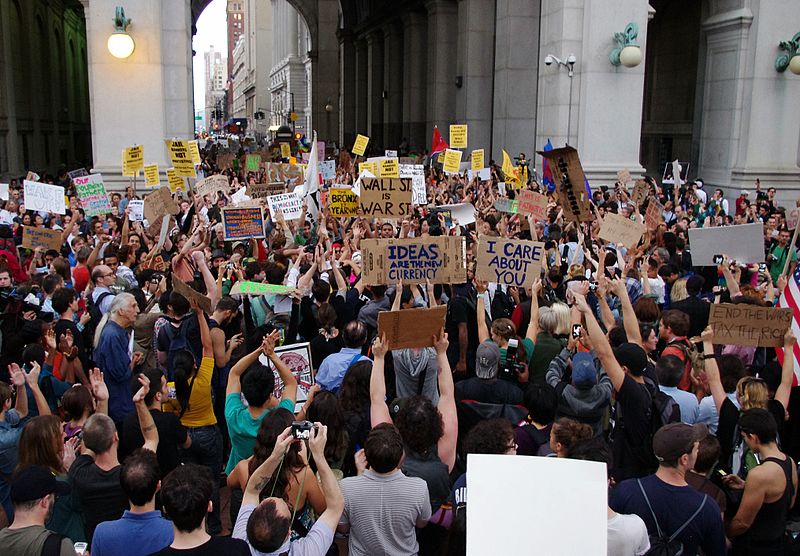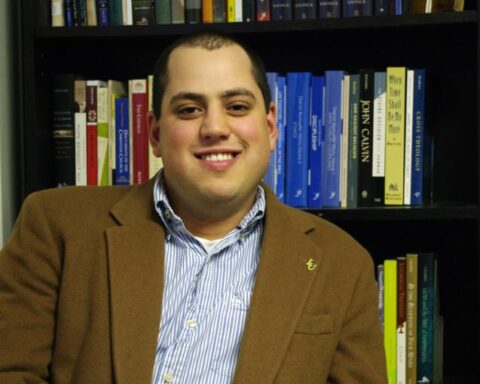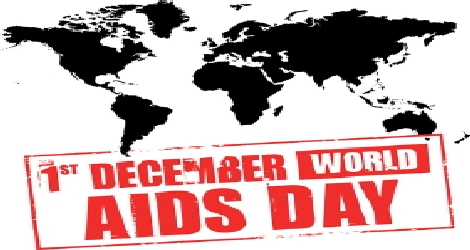A Reflection on three Stieg Larsson novels in light of the Occupy Wall Street protests
November 22, 2011, by Chris Iosso, an editorialThe Girl with the Dragon Tattoo (2006, English 2008), The Girl Who Played With Fire (2006, English 2009), The Girl Who Kicked the Hornets Nest (2007, English 2010)
 Reading the Stieg Larsson trilogy gives the moral fun of seeing a prophet, whistleblower, little man win, and a damsel in distress turn out to be a tigress on the attack. Now coming into U.S. movie theatres, an earlier film version of the trilogy has been produced in Sweden and is reportedly quite graphic. Because the crime mystery series is also about victimization of women, sex trafficking, and abusive therapy, earlier reviews pointed out how one can disapprove of this evil cake and have some, too. Still, the values of the series are clearly PF (personal freedom) and FP (freedom of the press), and its targets include governmental and financial corruption. And just as with the sex, so with the money: we get a financial reporter’s appreciation of how company ownership is structured, how corporate succession takes place, and how shell companies can “offshore” profit, while also seeing the cheating, tax evasion, and vicious greed. Yes, there are bad guys and, much fewer, bad women, mainly victims.
Reading the Stieg Larsson trilogy gives the moral fun of seeing a prophet, whistleblower, little man win, and a damsel in distress turn out to be a tigress on the attack. Now coming into U.S. movie theatres, an earlier film version of the trilogy has been produced in Sweden and is reportedly quite graphic. Because the crime mystery series is also about victimization of women, sex trafficking, and abusive therapy, earlier reviews pointed out how one can disapprove of this evil cake and have some, too. Still, the values of the series are clearly PF (personal freedom) and FP (freedom of the press), and its targets include governmental and financial corruption. And just as with the sex, so with the money: we get a financial reporter’s appreciation of how company ownership is structured, how corporate succession takes place, and how shell companies can “offshore” profit, while also seeing the cheating, tax evasion, and vicious greed. Yes, there are bad guys and, much fewer, bad women, mainly victims.
So these are novels against victimization and the reporter-detective is a kind of avenging angel, partly compromised in his personal life, but understanding how conflicted most people are. His Swedish world is more or less our normal world, with the pressures of campaign style living when he is on a hot story. And the hottest story is the girl with the dragon tattoo, who has amazing powers and yet is profoundly damaged—or profoundly different, not normal, and not fully accessible. While revealing the truths about others, some of the truths of her life can only be revealed at the end, in a climactic court scene, and even then some lying is permitted.
___________________________________________
This is the great power and wealth of our time, the technology for spinning financial webs… The act of hacking, in fact, not to vandalize but to expose evil, is where individuals can beat
institutions and rip through layers of corruption.
___________________________________________
The Swedish world of these novels is a world where integrity is ungrounded in any religious tradition or vision, and the heroine, Lisbeth Salander, is the epitome of an isolated individual with her own moral code. Without going into the three overlapping plot lines of the books, with their sometimes overly coincidental identity revelations (Sweden is a small country, after all), they raise the question of when justice becomes revenge. There is also the related question of whether truly evil human monsters need to be put down to prevent further victimizing. But for most evil-doers, justice means being stripped of ill-gotten wealth or power, or having their stupidity or vanity exposed. And the angle of vision for this to happen is from below, from the outsider.
The contrast in location comes out clearly when a supporting character goes from editing the struggling, crusading monthly Millennium magazine to a prestigious establishment newspaper that is being slowly choked by the profit demands of its owners and top executives. When the editor proposes cutting top salaries and investing in more reporting, she hits a wall. So much for mainstream media.
The heroine herself is pictured as tiny, short and thin, and deliberately alienating in style, a mystery even to her few friends. How did she get that way? How did her alienation become a powerful gift of observation and investigation? Hint: suffering had a lot to do with it. Suffering, in fact, makes it acceptable to us that she becomes one of the .001%, those persons of massive personal wealth who keep their flight capital in places like the Cayman Islands, Switzerland, and Gibraltar. The last shall be first, and we can imagine that at some time she will use her wealth for great good. The novelist respects the character he has created enough to give us her lack of social imagination for the use of that money even as she tries to discover her highly individualized place in the world.
___________________________________________
The people sitting outside great office towers, living in tents, expose the great pretensions and uneven playing fields of those who pay themselves millions of dollars, sometimes for great risks, often with other people’s money.
___________________________________________
A Christian reader may spot the church analogue in the one place where Lisbeth Salander’s hard won loyalties can be expressed in friendship and humor, the Hackers’ Republic. Her code name in that secret group is, “wasp.” This group of super-geeks is a bit like the “Justice League of America,” or some other group of super-heroes, able to penetrate the computers and hidden data of anyone. This is the great power and wealth of our time, the technology for spinning financial webs, and yet this secretive, anonymous group humanizes Salander, gives her peers she can trust, shares with her the mysteries, sacraments, and prayers of living online. The act of hacking, in fact, not to vandalize but to expose evil, is where individuals can beat institutions and rip through layers of corruption.

Institutional corruption brings us back to the struggle on the ground here in the United States and my use of the term, “occupy,” for what Lisbeth Salander does in cyberspace. The people sitting outside great office towers, living in tents, expose the great pretensions and uneven playing fields of those who pay themselves millions of dollars, sometimes for great risks, often with other people’s money. The skepticism of authorities and institutions by those young people on the street is not always well-founded, but yet they see the transparent venality of politicians serving lobbyists and the lobbyists serving great corporate hierarchies of wealth. Debased politics is unlimited money rather than communities finding fair ways to make decisions. Not paying taxes, as the Larsson novels dramatize, is stealing from the public purse.
Can the individualist message of the Salander airplane-reading, page-turners have a social application beyond the Occupy protests? Think of Massachusetts Senate candidate, Elizabeth Warren, truth teller to compromised congress and over-cautious president, who could not be confirmed to the Consumer Finance Protection Agency for defending the 99% against the bank lobbies. Perhaps she can be a WASP who unhacks politics even as she participates in it.
___________________________________________
…the children of cyberspace may have nowhere to pitch their tents—yet they may be performing more of a police function for our social order than the police who evict them.
___________________________________________
The challenge to simple moralism is that some of our 1% are charming and decent people, sometimes brilliant and occasionally generous. A consistent Calvinism does not attack individuals but questions the glamorization of wealth and champions that frugality that is humility in financial form. Greed is a dragon, a snake on the steroids of grandiosity. Larsson’s novels point to sexual greed, lust mixed with power, and they go after murderousness as much as murderers. So those who wish to re-occupy the spaces of democracy seek to re-claim human values as much as humane policies, though God knows we need both. Those Larsson novels can help their readers understand the anti-institutional cynicism of the young and disempowered.
What the Salander stories may also do is raise the question of judgment and justice and the need, not just for accountability, but for real punishment of financial wrongdoers, for morality to be restored. “Foxes have holes, birds have nests,” but the children of cyberspace may have nowhere to pitch their tents—yet they may be performing more of a police function for our social order than the police who evict them. Certainly Lisbeth Salander would not be surprised at being pepper sprayed.
See also:
- “Invite Them In: A Response to the Occupy Movement,” also by Chris Iosso
- “Pastor Pepper-Sprayed in Seattle,” with letter and response from Rev. Rich Lang (who was pepper-sprayed)
The Rev. Christian Iosso, Ph.D., is the Senior Editor of Unbound and Coordinator of the Advisory Committee on Social Witness Policy.
Banner photo by David Shankbone.







Unbound Social